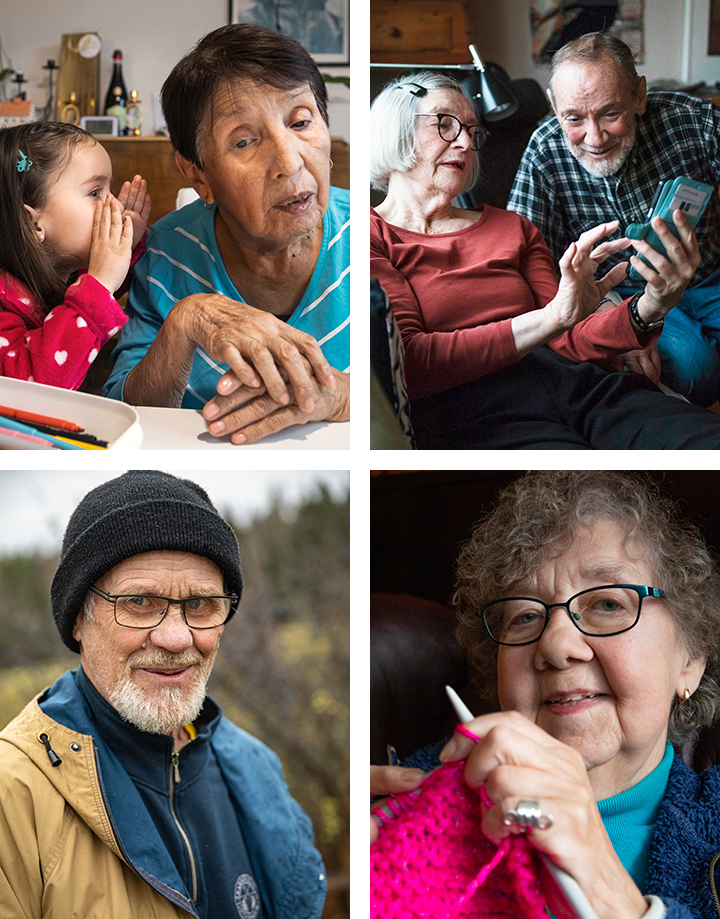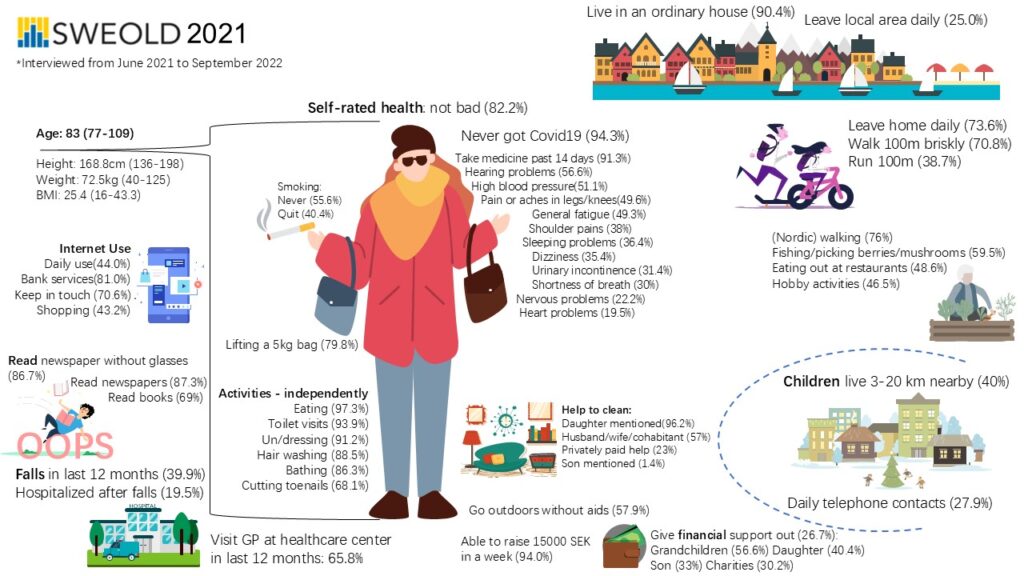The Swedish Panel Study of Living Conditions of the Oldest Old – SWEOLD is run by researchers from Aging Research Center at Karolinska Institutet.
SWEOLD is an ongoing, nationally representative survey of the older population in Sweden. The first data collection was conducted in 1992, and has been repeated in 2002, 2004, 2011, 2014 and 2021. Older adults are asked questions about their actual living conditions in a number of areas relevant to older people, these include health, health and social care, financial resources, housing, occupation, and everyday activities. The survey also includes a few basic tests on physical and cognitive performance.
The study sample is based on the sample frame for the Swedish Level of Living Survey (LNU), which was initiated in 1968. The SWEOLD sample consists of people who were previously included in LNU but have since aged out of the study which has an upper age limit of 75. Because the surveys are linked on an individual level, SWEOLD data provides the opportunity to follow individuals for over 50 years. A supplementary sample is taken for each data collection to ensure that the data continues to be representative of the current older population.

Photographers: Victor Celis, Sofia Strååt, Sandra Humer, Josefin Linsdtröm


Results from the SWEOLD survey are important for creating an understanding of older people’s living conditions based on up-to-date facts. The repeated design allows for analyses of how these living conditions change over time. Participants’ responses to the interviews are used in research and in statistical reports, which in turn form a foundation for the discussion with politicians and decision makers concerning older people’s living conditions.
The operating chief for SWEOLD is Associate Professor Carin Lennartsson who, together with Associate Professor Stefan Fors, is responsible for the survey.
The practical work with interviews and survey administration has been carried out by Ipsos, with Eva Ohlsson as the survey leader. The project is funded by the Swedish Research Council (the NEAR infrastructure) and Formas. SWEOLD has ethical approval from the Swedish Ethical Review Authority.
For a more detailed description of the survey, please see:
Lennartsson, C., Agahi, N., Hols Salen, L., et al., (2014). DATA RESOURCE PROFILE: The Swedish Panel Study of Living Conditions of the Oldest Old (SWEOLD). International Journal of Epidemiology, 43, 731–738, https://doi.org/10.1093/ije/dyu057